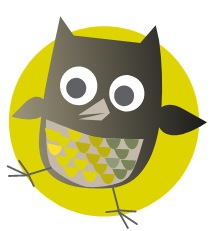One of the most basic, but also the most valuable, skills we can give our children is the ability to communicate well. Research shows that children who can use language well and confidently not only get better results at school, but also are more likely to succeed in later life.
At its heart, this means being confident with words – how to read them, what they mean and how to spell them. This link between phonics, vocabulary knowledge and spelling is crucial. Children who are excited to learn new words and spellings will continue to expand their vocabulary, which in turn, means that they will happily take on new learning across different subjects. Children who are anxious about unfamiliar words tend to stick to the vocabulary they know and can spell, which restricts their learning and ability to communicate well with others.
So, what can you do to help your child develop a healthy attitude towards early language skills?
1. Show them how much fun words can be
Try to find time to talk together and as you do, encourage them to ask questions so that you can chat back and forth. Point out words whose sound describe what they are such as crunchy or crumbly or words beginning with s- that can sound like soft, smooth or squishy things. You could create a list of favourite words together. Try finding small words inside big words, such as together, and see who can find the most. Tell jokes, use rhymes, read lots of stories and poems. You could even make up words that are particular to your family. Show your child a positive attitude towards words and language.
2. Use dictionaries to explore new words
Why let your child’s dictionary gather dust on the shelf when you could challenge each other to bring a new word into your everyday language? A ball, for example, could be described as ‘round’ but it is also a ‘sphere’. Repeat the word, say how much you like the sound of it. Encourage your child to say the word, too. See if you can find it in a dictionary together. You’ll need to listen carefully to the initial phonemes (sounds) in the word, talk about what letters can make up these sounds, and then use the alphabet to find the word. Point out how the dictionary explains the meaning of the word.
3. Get familiar with phonics – consonant sounds
At school, your child will follow a phonics reading programme. Each week they focus on different sounds and the letter, or letters, used to make the sounds. Try to keep track of which sounds your child is learning and practise at home. If they are learning the sound /b/ made by the letter ‘b’, have fun trying to spot things in your home which start with that sound, e.g. bed, beans, or book. Encourage your child to draw the letter or group of letters and then add pictures around it that start with that sound. If you use a phonics dictionary, you will find the words in it are ordered by their sound. When your child is learning the /s/ sound, you can use it to discover that both ‘sun’ and ‘Cinderella’ both start with the same sound but can be spelt either with the letter ‘s’ or the letter ‘c’. Try thinking of other words beginning with the /s/ sound and think about their spellings.
4. Ee, ea or ey – phonic vowel sounds
As well as learning about the initial (first) sounds in words, which are usually consonant sounds, your child will also learn about short and long vowel sounds. These are often, but not always, found in the middle and end of words. Some of these sounds can be spelt in many different ways. For example, the long vowel sound /ee/, can be spelt using the letters ee (bee), ea (dream), ey (donkey), ie (thief), y (funny), or e (me).
Once you know what sound your child is focusing on at school, have fun noticing that sound in other words. For example, if you come across the word donkey in a story, pause and think about other words that end with the same sound and spelling (e.g. key, money, trolley). You can use a phonics spelling dictionary to come up with these other words for you.
5. Be creative in learning tricky spellings
Some words are just tricky to spell so their spelling has to be learnt. Your child will come across many common words that just need learning, such as the, are, friend, one, or said. Try to pick out words that your child struggles to spell and find engaging ways to help them learn these spellings. Some children learn through chanting and repetition, others find it helpful to link actions to letters to help them remember spellings. Sometimes inventing a rhyme or saying can help children remember spellings, for example, ‘because’ (big elephants can always understand small elephants).
Read this helpful blog post on finding the right dictionary when thinking about which dictionary will suit your child.
Oxford Phonics Spelling Dictionary
Series created by Roderick Hunt and Alex Brychta
Phonics consultant: Debbie Hepplewhite
Using the Oxford Reading Tree Floppy’s Phonics Sound and Letters Programme and synthetic phonics, the Oxford Phonics Spelling Dictionary helps children become proficient readers and spellers. With 4000 words, ordered by sounds and spellings and linked to the Alphabetic Code Chart, it makes preparing for the phonics screening check simple and fun.
Find out more >
Download free Oxford Phonics Spelling Dictionary activity sheets >


